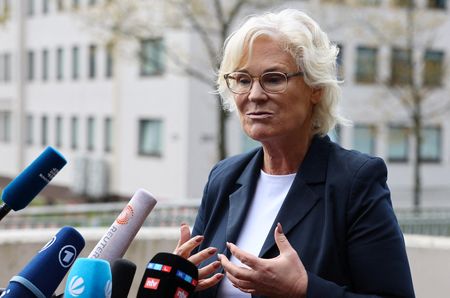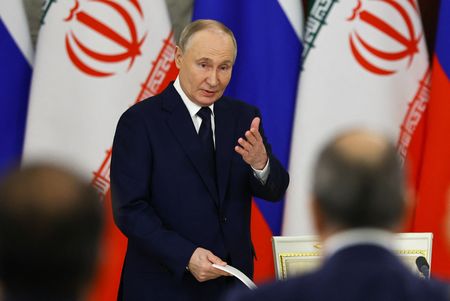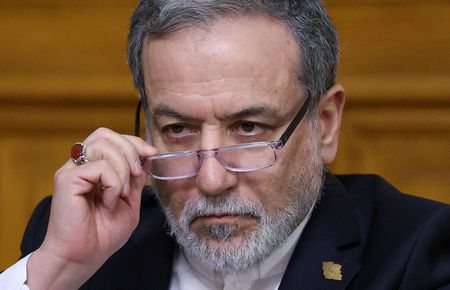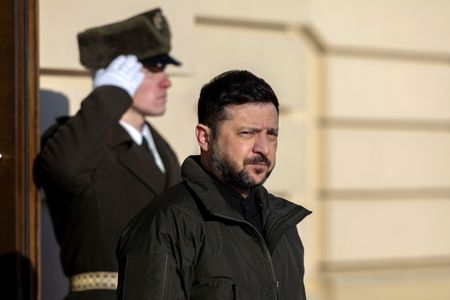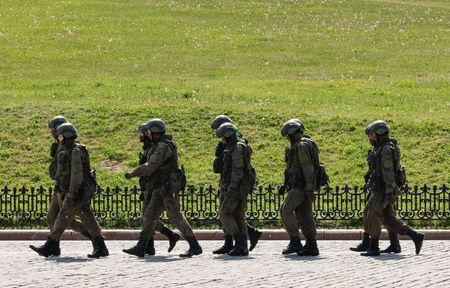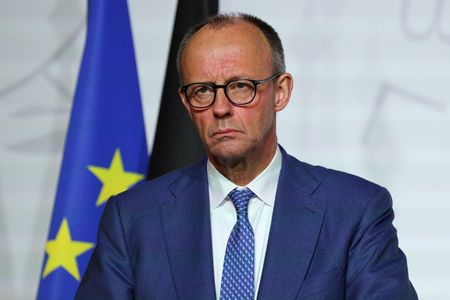By Sabine Siebold and Sarah Marsh
BERLIN (Reuters) -Germany announced on Tuesday its first delivery of heavy weapons to Ukraine to help it fend off Russian attacks, after weeks of pressure at home and abroad to do so amid confusion over its stance.
German Defence Minister Christine Lambrecht said the government, which is also racing to reduce its heavy reliance on imported Russian energy, had approved the delivery of Gepard tanks equipped with anti-aircraft guns from the stocks of company KMW on Monday.
U.S.
Secretary of Defence Lloyd Austin said he welcomed Germany’s decision to “send 50 Cheetah systems”.
“Those systems will provide real capability for Ukraine,” he said after talks with Lambrecht and dozens of their counterparts at the U.S.
Ramstein Air Base in western Germany.
Marcel Dirsus, non-resident fellow at Kiel University’s Institute for Security Policy, said the real significance of Germany’s decision lay not in the difference the Gepards would make on the battlefield but in the signal it sends.
“Europe’s largest economy is getting serious about supporting Ukraine, and more help is coming,” he said.
Critics, including Ukraine’s ambassador to Germany, have accused Berlin of dragging its heels on giving heavy weapons to Ukraine and on other measures that could help Kyiv repel Russian forces, such as an embargo on Russian energy imports.
They say Berlin is not showing the leadership expected of a major power and that its hesitations – amid concerns over the economic impact in Germany of barring supplies of Russian gas – are costing Ukrainian lives.
Chancellor Olaf Scholz has countered that the armed forces, the Bundeswehr, are already at the limit of what they can spare, while the weaponry that industry could provide lacks ammunition and needs upgrading.
RISK
Scholz, a Social Democrat whose party long championed rapprochement with Russia after World War Two, also warned of the risk of Moscow perceiving Germany as a party to the conflict, which could lead to a “third world war”.
However, even members of the the two junior partners in his three-way governing coalition, the Greens and Free Democrats, have questioned this reasoning, saying Germany needs to do more.
Ukrainian pleas for heavy weapons have intensified since Moscow shifted its offensive to the eastern region of Donbas, seen as better suited for tank battles than the areas around the capital Kyiv where much of the earlier fighting took place.
The announcement of Gepard deliveries came after reports on Monday that defence company Rheinmetall had requested government approval for the delivery of 100 old Marder infantry fighting vehicles and 88 old Leopard 1A5 tanks to Ukraine.
Moscow describes its actions in Ukraine, now entering a third month, as a “special military operation” that aims to degrade the military capabilities of its southern neighbour and root out what it calls dangerous nationalists.
Ukraine and its Western supporters call this a false pretext for an unprovoked war to seize territory.
Ukrainian forces have mounted stiff resistance and the West has imposed sweeping economic sanctions on Russia in an effort to force it to withdraw its forces.
(Additional reporting by Alexander Ratz, Maria Sheahan and Phil Steward, Editing by Miranda Murray, Paul Carrel and Mark Heinrich)

